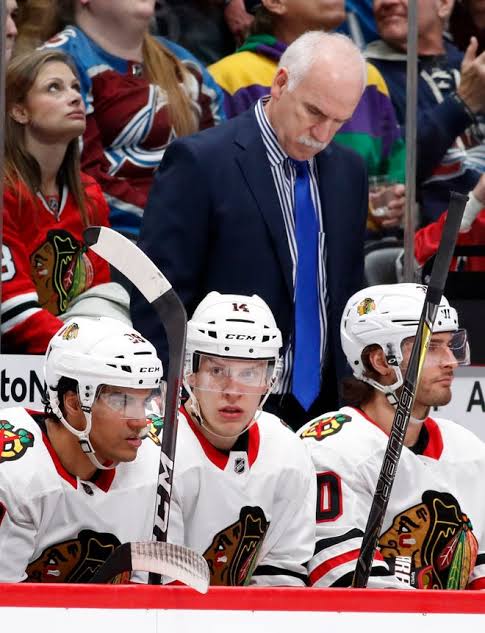Blackhawks Fire Coach Joel Quenneville After Decade-Long Tenure
In a move that sent shockwaves throughout the hockey world, the Chicago Blackhawks announced the firing of head coach Joel Quenneville on November 6, 2018, ending one of the most successful coaching eras in modern NHL history. Quenneville, affectionately known as “Coach Q,” leaves behind a storied legacy that includes three Stanley Cup championships and a deep cultural impact on both the franchise and the city of Chicago.
A Dynasty Dismantled
Quenneville’s dismissal came after a sluggish start to the 2018–2019 season, where the Blackhawks posted a 6–6–3 record through the first 15 games. However, many fans and analysts argue that his firing was less about the immediate performance and more a reflection of the team’s broader struggles in recent years. Following their 2015 Stanley Cup win, the Blackhawks had failed to make it past the first round of the playoffs, and they missed the postseason entirely in 2018 for the first time since 2008.
Despite the team’s recent downturn, Quenneville remained a beloved figure in Chicago. His firing was met with a mixture of disbelief, disappointment, and gratitude from fans who remembered the golden era of Blackhawks hockey he helped usher in.
An Impressive Legacy
Joel Quenneville joined the Blackhawks in October 2008, replacing Denis Savard just four games into the season. At the time, the Blackhawks were a talented but underperforming squad. With Quenneville behind the bench, the team quickly transformed into a powerhouse. Under his leadership, Chicago won the Stanley Cup in 2010, 2013, and 2015, becoming the NHL’s closest approximation to a dynasty in the salary cap era.
During his tenure, Quenneville compiled a record of 452–249–96 in the regular season, making him the second-winningest coach in NHL history at the time of his firing, trailing only the legendary Scotty Bowman. He also holds the distinction of being the Blackhawks’ all-time winningest coach.
More than just wins and trophies, Quenneville brought a sense of consistency and professionalism to the Blackhawks’ locker room. He was respected for his tactical acumen, particularly his ability to make in-game adjustments, and for his calm demeanor in high-pressure situations. Players frequently credited him for fostering a team-first mentality and creating an environment where stars like Jonathan Toews, Patrick Kane, Duncan Keith, and Brent Seabrook could thrive.
Reasons Behind the Firing
General Manager Stan Bowman and President John McDonough cited the need for a “new voice” and a “fresh approach” as the rationale behind Quenneville’s firing. Bowman, who has been under pressure himself for some questionable roster decisions and trades, emphasized that the move was about looking toward the future rather than punishing past failures.
However, critics have noted that many of the team’s struggles were due to front office decisions beyond Quenneville’s control. The salary cap forced the breakup of championship rosters, and trades such as sending Artemi Panarin to Columbus in exchange for Brandon Saad were widely panned. Injuries and aging players further complicated efforts to stay competitive in a rapidly evolving league.
Some insiders also speculated that philosophical differences between Quenneville and the front office contributed to the decision. Over time, there appeared to be a growing rift between the coach and management regarding player usage and roster construction.
A New Chapter
Replacing Quenneville was 33-year-old Jeremy Colliton, who at the time became the youngest head coach in the NHL. Colliton was promoted from the Blackhawks’ AHL affiliate, the Rockford IceHogs, where he had shown promise in developing young talent. The decision to hire a relatively inexperienced coach was seen as a bold, perhaps risky, move. While Bowman emphasized Colliton’s potential to grow with the team’s younger core, the contrast between him and the seasoned Quenneville could not have been more stark.
For fans, the coaching change marked the end of an era. The Quenneville years were not just about winning—they were about restoring the Blackhawks as a premier NHL franchise. Before his arrival, the team struggled with low attendance and had become irrelevant in a city dominated by baseball and football. By the time he left, the Blackhawks were one of the NHL’s marquee teams, regularly selling out games and leading the league in merchandise sales.
What’s Next for Quenneville?
Even after his dismissal, there was little doubt that Quenneville would be highly sought after for future coaching roles. With his championship pedigree and veteran experience, many teams in need of leadership were expected to pursue him. Indeed, less than a year later, Quenneville was hired by the Florida Panthers, signaling that his coaching journey was far from over.
A Lasting Impact
The firing of Joel Quenneville was a pivotal moment for the Chicago Blackhawks. While the decision may have been motivated by a desire to retool and rebuild, it also underscored the challenges of maintaining success in a league built on parity. Still, nothing can erase the legacy Quenneville leaves behind: a trio of Stanley Cups, a culture of winning, and the revival of a proud franchise.
As Chicago turns the page and looks to the future, fans and players alike will remember Joel Quenneville not just as a great coach, but as a legend who helped define an unforgettable era in Blackhawks history.

